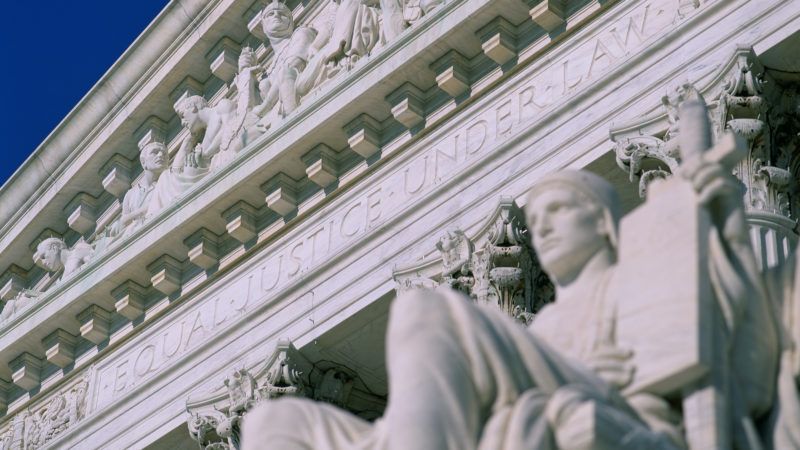Coronavirus Cases Pit Constitutional Rights Against Public Health Authority
The federal courts start to grapple with COVID-19 shutdown orders.

The First Amendment protects "the free exercise" of religion and "the right of the people peaceably to assemble." According to a federal judge in California, those constitutional rights do not trump the power of state and local officials to prohibit in-person religious services in the name of combating COVID-19.
On March 4, California Gov. Gavin Newsom (D) issued a statewide "stay at home" order as part of his administration's efforts to arrest the spread of the coronavirus. Local officials in San Joaquin County soon followed suit with an order of their own, which banned "all non-essential gatherings of any number of individuals." Both orders effectively prohibited churches from holding in-person religious services.
The San Joaquin-based Cross Culture Christian Center took the matter to the U.S. District Court for the Eastern District of California, asking Judge John Mendez to declare the orders unconstitutional as applied to its religious practices and to enjoin the government from enforcing them. According to the lawyers for the church and its pastor, Jonathan Duncan, if allowed to reopen, they planned to "follow CDC guidelines and San Joaquin County social distancing protocols in the use of their sanctuary for assemblies and their parking lot for drive-in services."
Judge Mendez ruled against the church this week. "The incidental—albeit uncomfortable—burden the State and County orders place on the exercise of religion simply do not engender the type of religious discrimination the Constitution aims to prevent," Mendez wrote in Cross Culture Christian Center v. Newsom. "The State and County orders are not unconstitutional. Rather they are permissible exercises of emergency police powers especially given the extraordinary public health emergency facing the State."
In Mendez's view, the courts should be extremely wary about second-guessing the wisdom of these sorts of public health orders. In fact, he maintained, the government should get to enjoy broad leeway to operate against the coronavirus. "During public health crises," Mendez maintained, "government officials must ask whether even fundamental rights must give way to a deeper need to control the spread of infectious disease and protect the lives of society's most vulnerable. Under these rare conditions, the judiciary must afford more deference to officials' informed efforts to advance public health—even when those measures encroach on otherwise protected conduct."
A different vision of the judicial role in the age of coronavirus was offered last month by Judge Justin Walker of the U.S. District Court for the Western District of Kentucky. In On Fire Christian Center v. Fischer, Walker enjoined Louisville Mayor Greg Fischer (D) from enforcing a ban on drive-in Easter services. Yes, the city may take various actions in order to stop the spread of infectious diseases, Walker acknowledged. But "it appears likely that Louisville's interest in preventing churchgoers from spreading COVID-19 would be achieved by allowing churchgoers to congregate in their cars as On Fire proposes." In other words, according to Walker, this particular prohibition amounted to an unjustifiable exercise of government power.
Walker also differed from Mendez and his call for judges to show "more deference" to government officials battling the disease. "The COVID-19 pandemic has upended every aspect of our lives," Walker wrote. Nevertheless, "constitutional rights still exist."


Show Comments (35)